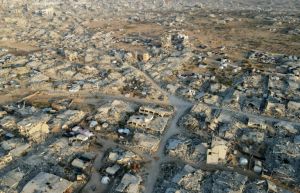Tucked within the ranges in southern Philippines, Mt. Matutum is home to the indigenous B'laan tribe - the makers of the rarest and most expensive coffee in the world.
Apo Pedring, now in his 80s, was among the few that carried the legacy of sustaining this rare brew-making industry from generations to generations.
He welcomed my fascination to this great brew with my first encounter with rare coffee. Served from a brewing tea pot, I gasped for its aroma letting it run to my nose to orient my senses.
It has strong chocolate-like aroma, but light that it flows smoothly from my nostril to my head without interruption. The taste will bring your senses to a surprise because it simply contradicted the coffee's persuading aroma. It has no bitter taste. It's smooth to the mouth.
A minute after my first sip, I'm sweating all over and my manhood energized. According to Apo Pedring, I just tasted "the most effective aphrodisiac in the world".
I did not argue whether or not scientific studies supported his claim. After all, who would dispute the testimony of an octogenarian who have three wives and 22 children.
Kape Alamid is made from coffee berries that are being eaten and defecated by the Asian Palm Civet, locally known as alamid or milu. The B'laan tribe pampered these civets for this very special purpose.
During the coffee season, civets flocked to the plantation undisturbed. They eat the berries. The beans passed through their system undigested.
Why does Civet coffee taste so good?
The B'laan believed that these creatures choose only the ripest and sweetest coffee berries.
When the beans pass through civet's digestive tract, enzymes break down some of the proteins producing beans of low acidity and thereby resulting in a very smooth, much less acidic brew.
The B'laan then collects the dungs from the plantation floor, wash them by the river, dried them for a couple of days, and roast them to produce the unique drink.
It's very amusing to know that the B'laan lives by the "poo" of these little creatures, selling a 100g pack at $25 USD.
In Manila, where you need to comb down the coffee shops in the metropolis to find one, a 50g pack costs between $15 USD to 25 USD.
In Australia, Europe and the United States, the cost varies from $400 to as much as $600 a kilo.
Truly, this brew matches the gold treasures of Mt. Diwalwal. But contrary to the gold rush capital in southern Philippines, people in Mt. Matutum do not destroy the environment in search for this treasure. They simply do not disrupt the order of nature, and as a result, they get the best from it.
© 2025 HNGN, All rights reserved. Do not reproduce without permission.








